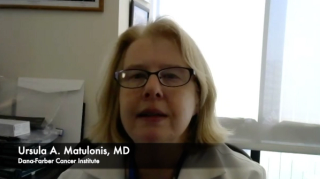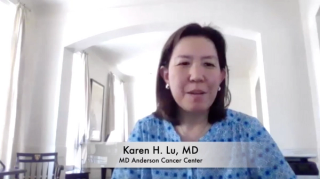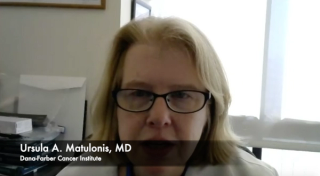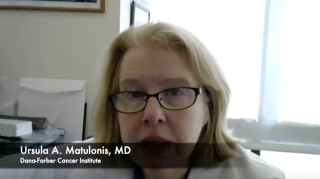
Ovarian Cancer
Latest News


PFS Enhanced With Olaparib Rechallenge in Relapsed Ovarian Cancer After Prior PARP
Latest Videos

CME Content
More News
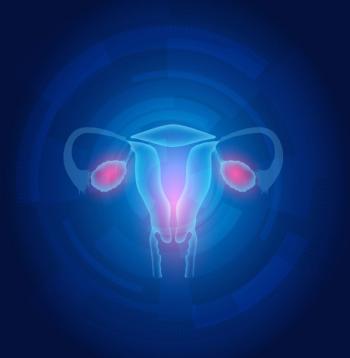
The FDA has granted IN10018 a fast track designation for the treatment of patients with platinum-resistant ovarian cancer.

Investigators will continue treating patients with GEN-1 plus neoadjuvant chemotherapy following the results of a pre-planned interim safety review of the phase 1/2 OVATION 2 study.

A new phase 2 study shows that patients who were treated with HIPEC and Carboplatin, did not have better progression-free or overall survival.

Patients with Wilms Tumor-1–positive ovarian cancer have shown promising response to the combination of galinpepimut-s and pembrolizumab.

Data from the phase 3 JAVELIN Ovarian 200 trial indicated that avelumab with or without pegylated liposomal doxorubicin did not yield a significant improvement in overall or progression-free survival over the chemotherapy alone in platinum-resistant/refractory ovarian cancer.

Kathleen Moore, MD, discusses findings compiled from 3 clinical trials of niraparib in patients with ovarian cancer.

The results of a randomized control trial emphasized the need for screening methods earlier in disease but did not show a reduction in deaths for patients with ovarian and tubal cancer.
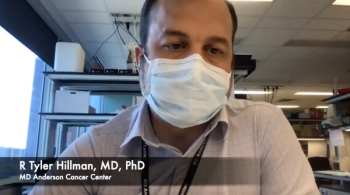
An expert emphasizes how a big team is needed to properly employ the different therapeutic modalities needed to treat patients with ovarian granulosa cell tumors.

Doubling treatment duration of bevacizumab did not lead to better survival in patients with ovarian cancer who were treated on a phase 3 trial.

Results reported at the 2021 ASCO Annual Meeting show that half of patients treated in the FORWARD II trial achieved a response to therapy with mirvetuximab soravtansine and bevacizumab.

Patients with platinum-sensitive recurrent ovarian cancer treated with niraparib had an acceptable safety profile regardless of the dose being adjusted for weight.

CancerNetwork® sat down with Shannon N. Westin, MD, MPH, at the 2021 ASCO Annual Meeting to talk about the use of adavosertib in PARP inhibitor–resistant ovarian cancer.

Data presented at the 2021 ASCO Annual Meeting on 3 prominent trials of niraparib as maintenance for ovarian cancer after a positive response to platinum-based chemotherapy further support the use of the agent in multiple settings.

A RAF/MEK plus FAK inhibitor combination will be given an expedited review by the FDA as therapy for patients with recurrent low-grade serous ovarian cancer.

Investigators assessed a 2-part study to investigate the prognostic impact of certain clinical features and genomic markers for rucaparib in treating patients with relapsed high-grade ovarian carcinoma.

Research focusing on first-line single-agent carboplatin was terminated due to an independent data monitoring committee’s recommendation after worse survival outcomes were observed in adult patients with ovarian cancer.

Dr. Rebecca Previs shares data on some exiting emerging therapies in the front line setting for patients with advanced ovarian cancer.

An expert in ovarian cancer describes how initial first line therapy impacts first line maintenance options.

Dr. Rebecca Previs talks about when first line maintenance therapy is appropriate and which patients should be presented with this option.

Dr. Rebecca Previs discusses the role of PARP inhibitors in first line maintenance therapy in advanced ovarian cancer.

For patients with recurrent platinum-resistant epithelial ovarian cancer who were naïve to PD-1/PD-L1 inhibition, the combination treatment of tislelizumab plus sitravatinib showed early antitumor activity while maintaining a manageable safety profile.

TAS-117 showed limited clinical efficacy in treating patients with ovarian cancer harboring PIK3CA E545K mutations and in those with breast cancer harboring PIK3CA H1047R and Akt1E17K mutations.

The phase 3 SOC-1 trial found an association between secondary cytoreduction followed by chemotherapy and prolonged progression-free survival when compared with chemotherapy alone for patients with relapsed ovarian cancer.

An expert oncologist reviews therapeutic options for front line maintenance in advanced ovarian cancer.

Dr. Rebecca Previs explains the importance of somatic and germline testing in guiding first line treatment selection in women with advanced ovarian cancer.




